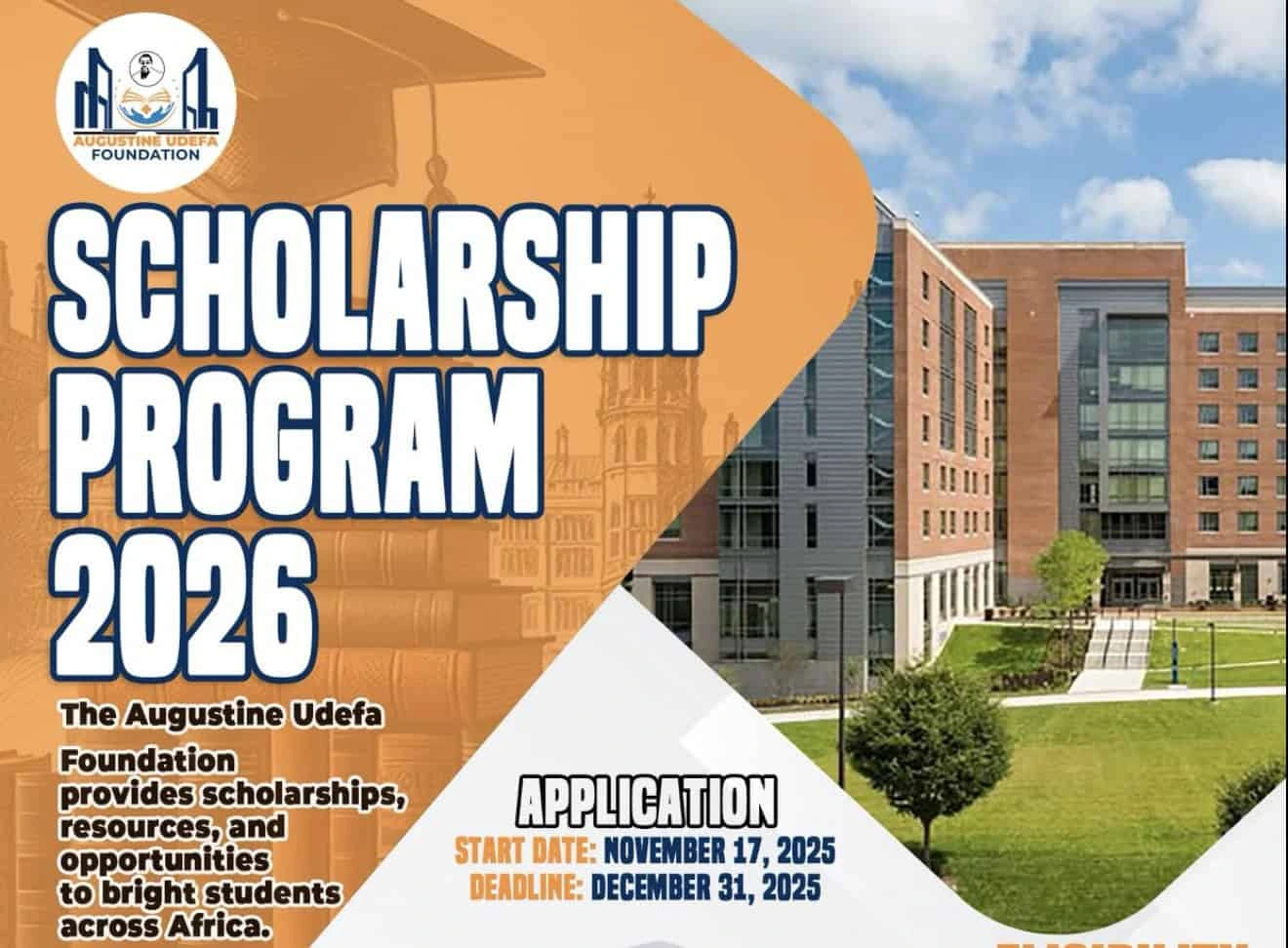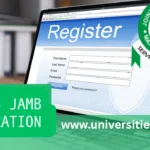The Augustine Udefa Speaking Scholarship supports talented African students in higher institutions who show strong public speaking skills, clear reasoning, and good character. The award is linked to a speaking competition organized by the Augustine Udefa Foundation, and winners receive school fee support and cash prizes.
What Is the Scholarship About?
This scholarship is designed for students who can speak confidently, think clearly, and communicate strong values. It is created to support students who may face financial challenges but have the ability to use their voice for positive ideas.
Winners are selected through a series of speaking competitions. Judges and members of the public score each speaker. The top student receives full school fee support for their entire programme plus a cash prize. The second and third positions also receive fee support and prizes.
Who Can Apply for the Augustine Udefa Speaking Scholarship?
Applicants must meet the following conditions:
- Be a student of a public university, polytechnic, monotechnic, or college of education in any African country
- Be in 100 level or 200 level. A 300 or 400 level student may be considered if they can show clear financial need
- Be of good moral conduct
- Submit all required application documents through the official online portal
Required documents include:
- Curriculum vitae (CV)
- Admission letter
- Attestation letter from the Head of Department (on official letterhead) confirming good conduct
Scholarship Value and Awards
The scholarship offers fee support and cash prizes:
- Winner: Full school fees for the entire programme + ₦100,000 cash prize
- Second place: Full school fees for one academic session + ₦50,000 cash prize
- Third place: Full school fees for one academic session
Renewal of the Scholarship
The top winner may renew the scholarship every year if they meet these conditions:
- Maintain a CGPA of at least 3.5 on a 5.0 scale, or 2.5 on a 4.0 scale
- Present a letter from the HOD confirming the CGPA and progress in the programme
- Submit two attestation letters from academic referees confirming good character
When the Scholarship Can End
The scholarship may be withdrawn if:
- The student fails to meet the minimum CGPA required for renewal
- The student is rusticated or penalized for misconduct
- The student posts or shares content on social media that promotes nudity or sexual immorality
How to Apply
Applicants must complete the online form on the Augustine Udefa Foundation Speaking Scholarship Application Page.
Documents to upload include:
- Cover letter
- Curriculum vitae (CV)
- Admission letter
- Attestation letter from the HOD
All documents must be clear and readable.
Speaking Competition and Timeline
The scholarship competition begins in January 2026. Shortlisted applicants will receive instructions on how to join the contest.
Each speaker will record a three-minute video, speaking on a given topic. The video must be clear and audible. It will be submitted through a dedicated email that will be shared with selected participants.
The competition will run on social media platforms such as:
- Y’tino Intellectual Discourse Facebook page
- ytino2025 Instagram account
- Y’tino Intellectual Discourse TikTok account
- Augustine Udefa Foundation YouTube channel
Members of the public will be able to vote for their preferred speakers.
Stages of the Speaking Competition
Stage 1: Group Stage
- Participants are divided into groups
- Contestants speak one-on-one within their group
- A win gives the speaker three points
- The highest-scoring speaker in each group moves to the next stage
Stage 2: Semi-Final Stage
- Group winners compete against one another
- The top two speakers advance to the final
- The contestant with the third-highest score becomes the third-place winner
Stage 3: Final Stage
- The two finalists compete for the top award
- Winner: Full programme fee support + ₦100,000
- Second finalist: One-session fee support + ₦50,000
- Third place: One-session fee support
Voting and Scoring
Each speaker is assessed through a combined scoring system:
- Judges: 70% of the total score
- Public votes: 30% of the total score
The final score is the sum of both.










